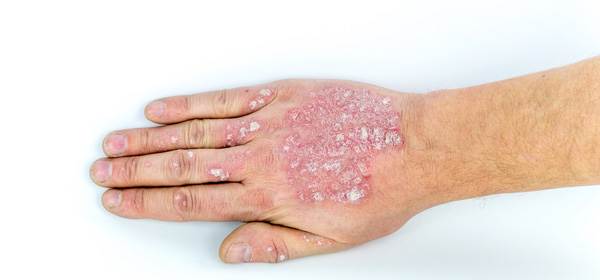If you experience recurring itchy skin with dry, red patches, you could have psoriasis. Psoriasis is actually an autoimmune disorder, beginning deep inside your immune system. It comes from your T cells, which are designed to help protect the body from infection and disease. When these white blood cells are accidentally triggered, it can lead to psoriasis symptoms.
There’s no cure for psoriasis, but there are many effective methods to help ease symptoms. Here are seven treatments you can try at home to help ditch the itch.
1. Add some cream
Sometimes, a heavy cream can be the answer. You could try a thick cream moisturiser or petroleum jelly, both of which help to lock in moisture, reduce redness and assist the skin in healing. You could also try wrapping the affected areas in cling wrap or tight clothing (such as socks or gloves) overnight for an extra moisture boost. It might be best to avoid heavily scented products, as these can aggravate the skin further.
2. Get some sun
Some studies suggest that the sun’s ultraviolet B rays can help fight psoriasis, so when the itch persists, try to spend some time in the great outdoors. Remember to wear sun smart protective clothing and apply sunscreen to areas without psoriasis. Avoiding spending more than five to 10 minutes in the sun.
3. Take a dip
A salt water bath with Dead Sea or Epsom salts can do wonders to soothe dry, flaky skin. Enjoy a nice long soak, and apply an unscented moisturiser afterwards to seal in moisture.
4. Feel the burn
Chilli has long been recognised for its internal anti-inflammatory properties, but capsaicin, the ingredient that makes chilli hot, may also help reduce skin ailments. Some research suggests applying a topical over-the-counter cream where capsaicin is a main ingredient can cut pain, inflammation and redness. Be warned, some people may experience a burning sensation when they apply it.
5. Add some spice
If you love your curry, this cure will please you. The distinctive yellow herb, turmeric, often found in curry sauce, can help to reduce psoriasis flare ups. It has been known as a healing spice for centuries, and contains the active ingredient curcumin, which has anti-inflammatory properties. You can try adding it to your meals or taking a supplement.
6. Tea tree oil
For relief from itching, and to reduce redness, try tea tree oil. The tea tree is native to Australia and is commonly used as an essential oil and as an active ingredient in many lotions and shampoos. It’s often used to fight skin conditions, such as acne, and has a reputation for clearing up nail infections and reducing inflammation. If you plan to use pure tea tree oil, dilute it with a carrier oil, such as almond or macadamia oil, as pure tea tree oil can burn the skin.
7. Change your diet
With a focus on fish, vegetables, fruits, nuts and olive oil, the Mediterranean diet is touted as one of the most beneficial in the world. Not only has it been found to help boost physical health and help reduce inflammation, the Mediterranean diet has also been linked to better mental health. The most important features of the Mediterranean diet are the healthy fats, found in fish and olive oil, so generally consuming more omega-3 fatty acids is a good idea to help ditch the itch.
Related articles:
Mediterranean diet linked to mental health
Five ways to get your fill of fish
Is your skin sensitive?

